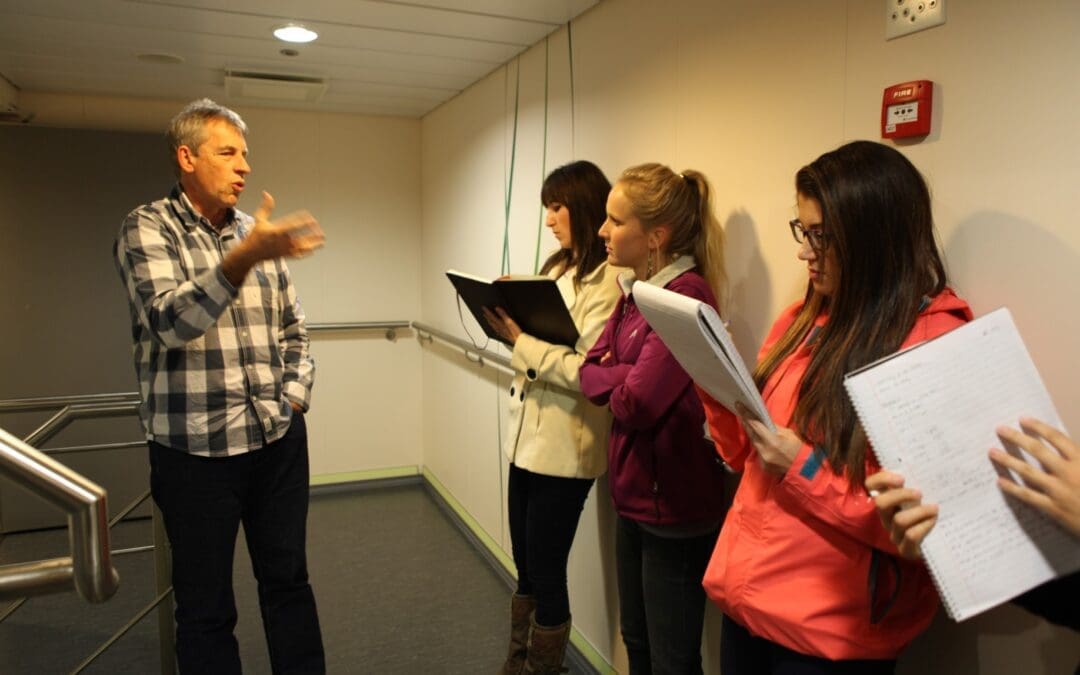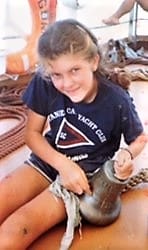
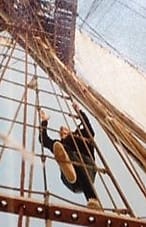
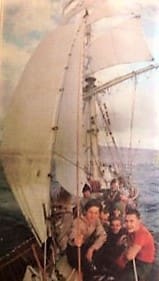
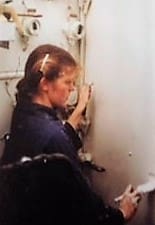 Isabelle as a child always wanted to be an oceanographer. “When I was 13 my father sent me off for 6 months on a Tall Ship to sail around Africa. And so, having grown up on sailing ships and sailing the world at a very young age it seemed only natural to follow in my passion to build a career around the sea.
Isabelle as a child always wanted to be an oceanographer. “When I was 13 my father sent me off for 6 months on a Tall Ship to sail around Africa. And so, having grown up on sailing ships and sailing the world at a very young age it seemed only natural to follow in my passion to build a career around the sea.
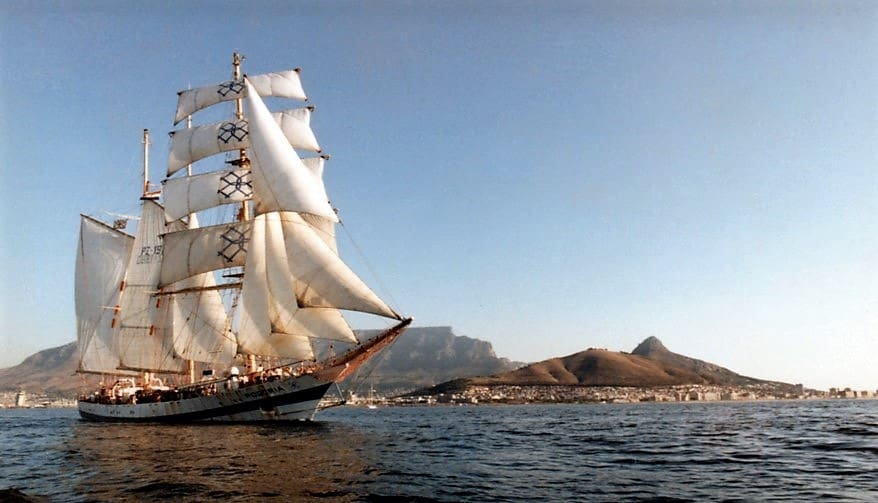
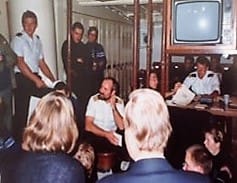
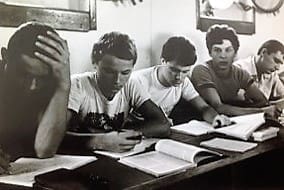 I first studied at Plymouth University in the UK, where I completed a BSc in Ocean Sciences in 1992. I came to South Africa in 1993 and under the mentorship of Professor Lutjeharms in the Oceanography Department at UCT I started to turn this passion into a sea-going academic career.
I first studied at Plymouth University in the UK, where I completed a BSc in Ocean Sciences in 1992. I came to South Africa in 1993 and under the mentorship of Professor Lutjeharms in the Oceanography Department at UCT I started to turn this passion into a sea-going academic career.
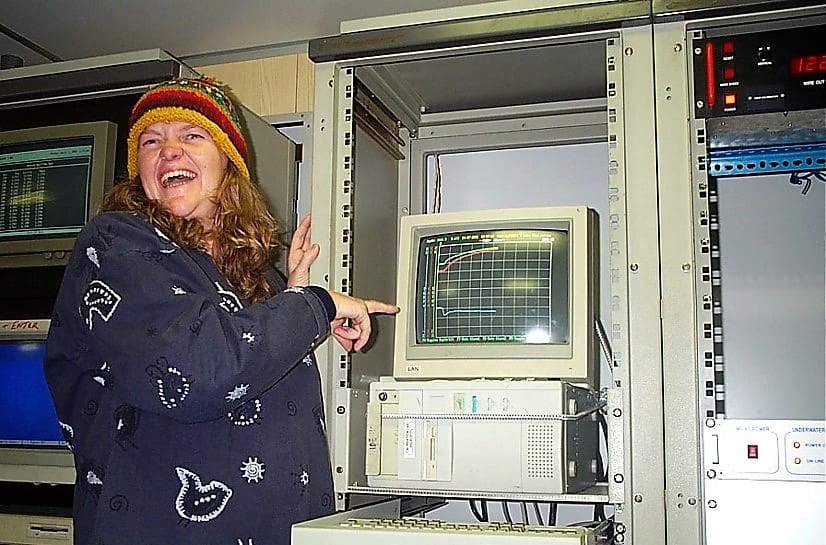
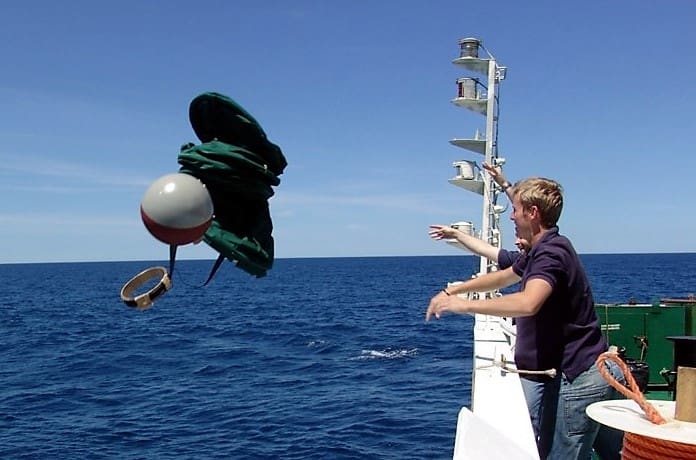
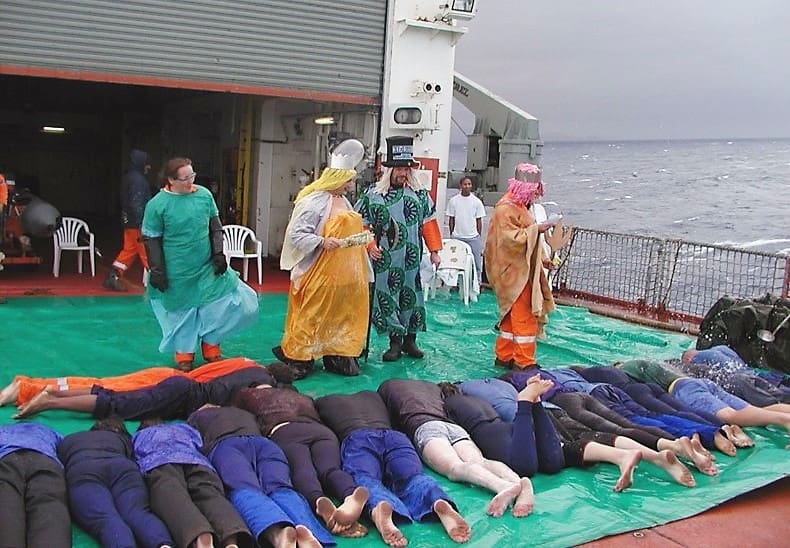 One of my first jobs at UCT was to gain seagoing experience in working with all ship-based equipment. I loved being at sea and felt that after my many experiences on both national and international research vessels that I would be good at teaching practical oceanography. And so began a long period of sea-going adventures between 1996 and 2016 in which UCT Honours students were taken to sea onboard the old SA Agulhas I and from 2012 the new SA Agulhas II. The training was always part of the 5 week Prince Edward Island relief voyage and in those days students had to work the winches, drive the CTD software, work up the data for mini-projects!
One of my first jobs at UCT was to gain seagoing experience in working with all ship-based equipment. I loved being at sea and felt that after my many experiences on both national and international research vessels that I would be good at teaching practical oceanography. And so began a long period of sea-going adventures between 1996 and 2016 in which UCT Honours students were taken to sea onboard the old SA Agulhas I and from 2012 the new SA Agulhas II. The training was always part of the 5 week Prince Edward Island relief voyage and in those days students had to work the winches, drive the CTD software, work up the data for mini-projects!

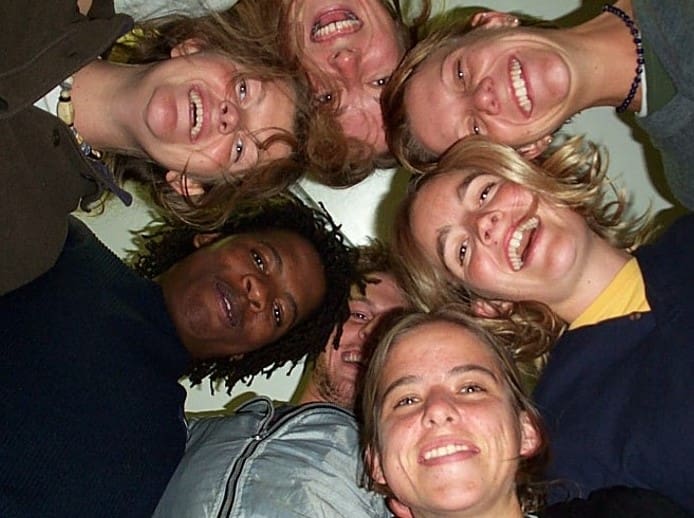 Isabelle’s Working Life: “I was employed as a lecturer at UCT in 2006 and have worked hard to build a career both nationally and internationally in observational oceanography. My passion and love for the sea can be seen in the many opportunities that I create for students both at UCT, and as can be seen from the SEAmester Floating University across the entire country. I was the first female PhD graduate in Oceanography at UCT in 2000, I am the only female Full Professor in the Oceanography Department and the first female Head of Department in 2016. “
Isabelle’s Working Life: “I was employed as a lecturer at UCT in 2006 and have worked hard to build a career both nationally and internationally in observational oceanography. My passion and love for the sea can be seen in the many opportunities that I create for students both at UCT, and as can be seen from the SEAmester Floating University across the entire country. I was the first female PhD graduate in Oceanography at UCT in 2000, I am the only female Full Professor in the Oceanography Department and the first female Head of Department in 2016. “
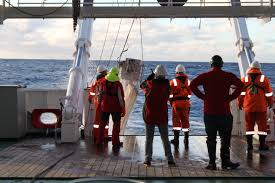
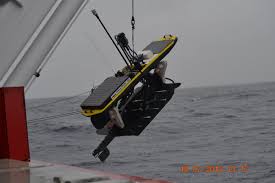
 What drives me:” I love teaching students. Taking a student to sea and watching them learn and seeing their eyes light up when they first board the SA Agulhas II is extremely rewarding. Many of my former students have returned to sea either as senior researchers leading their own cohort of students, or they have built their career in marine management or moved into the academic field. It is so rewarding see young inexperienced students join a cruise and leave imbued with a new confidence and a passion for their discipline.
What drives me:” I love teaching students. Taking a student to sea and watching them learn and seeing their eyes light up when they first board the SA Agulhas II is extremely rewarding. Many of my former students have returned to sea either as senior researchers leading their own cohort of students, or they have built their career in marine management or moved into the academic field. It is so rewarding see young inexperienced students join a cruise and leave imbued with a new confidence and a passion for their discipline.
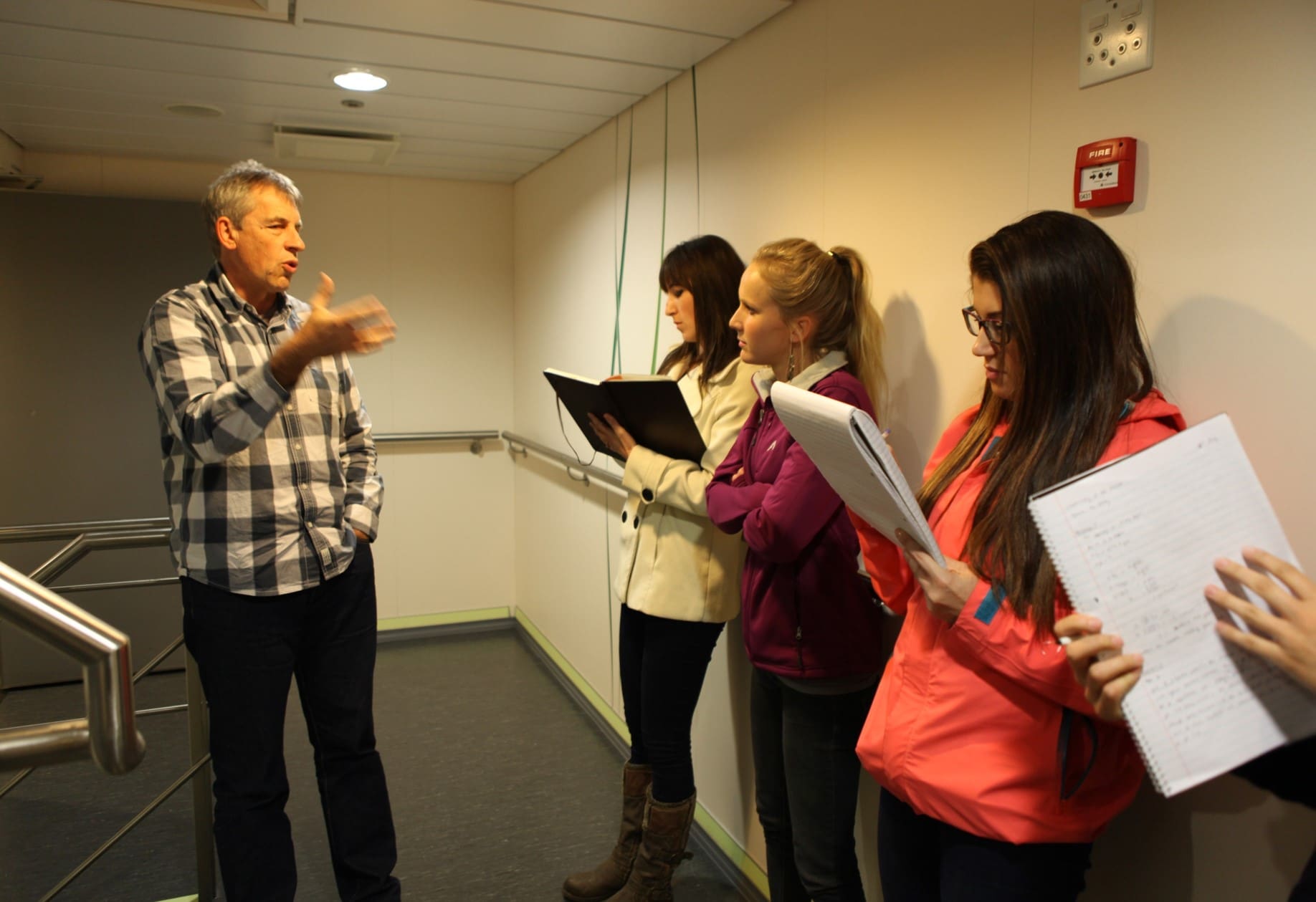 “I am proud of the SEAmester programme and how we have been able to develop linkages with traditionally non marine universities both through their students joining as SEAmester students or their own Lecturers joining the academic programme. The state-of-the-art research vessel, SA Agulhas II, provides such an incredible teaching and research platform for this programme; its size, comfort and shipboard facilities allow groups of 46 students and 30 lecturers to productively interact over a period of 10 days as can the photo of Prof Gammon teaching students in the ship’s stairwell shows so well!.”
“I am proud of the SEAmester programme and how we have been able to develop linkages with traditionally non marine universities both through their students joining as SEAmester students or their own Lecturers joining the academic programme. The state-of-the-art research vessel, SA Agulhas II, provides such an incredible teaching and research platform for this programme; its size, comfort and shipboard facilities allow groups of 46 students and 30 lecturers to productively interact over a period of 10 days as can the photo of Prof Gammon teaching students in the ship’s stairwell shows so well!.”
 My advice to the young generation: “Four words – always take the initiative! In the UK the only sea-going opportunity I had was to work on the River Tamar outside of Plymouth! In South Africa our students go to Antarctica! But it takes you to make that difference. We have so many wonderful opportunities in South Africa and access to such incredible marine programmes and platforms but the sparkplug to get started must come from you. All academics get frustrated by students not willing to engage with their surroundings and
My advice to the young generation: “Four words – always take the initiative! In the UK the only sea-going opportunity I had was to work on the River Tamar outside of Plymouth! In South Africa our students go to Antarctica! But it takes you to make that difference. We have so many wonderful opportunities in South Africa and access to such incredible marine programmes and platforms but the sparkplug to get started must come from you. All academics get frustrated by students not willing to engage with their surroundings and 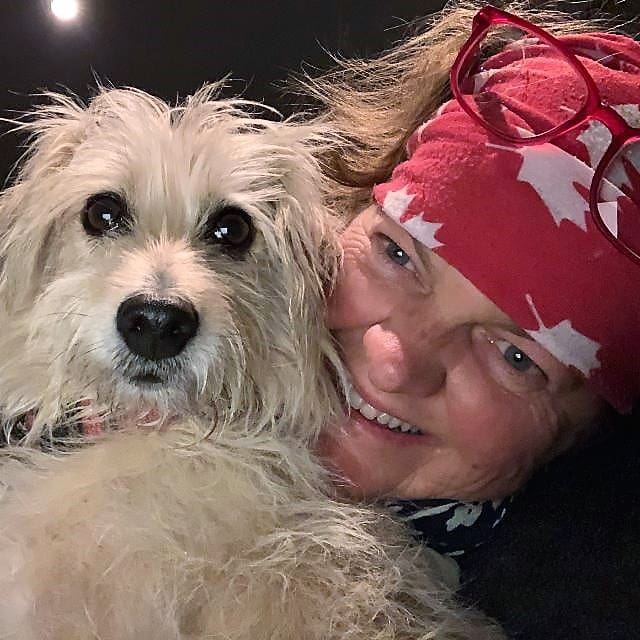 not even realise the enormous privilege it is to be on a research vessel such as the SA Agulhas II. You don’t have to be the brightest student in the class but by staying engaged, enthusiastic, interactive and dedicated to your studies you will always go much further in life. Opportunities are endless but it takes you to grab it!”
not even realise the enormous privilege it is to be on a research vessel such as the SA Agulhas II. You don’t have to be the brightest student in the class but by staying engaged, enthusiastic, interactive and dedicated to your studies you will always go much further in life. Opportunities are endless but it takes you to grab it!”
Text and Images supplied by Isabbelle Ansorge.
Visit SANAP website on Isabelle Ansorge’s current research projects within the program. Also see Sunday Science on SEAmester
https://youtu.be/0LUpdr-masA

